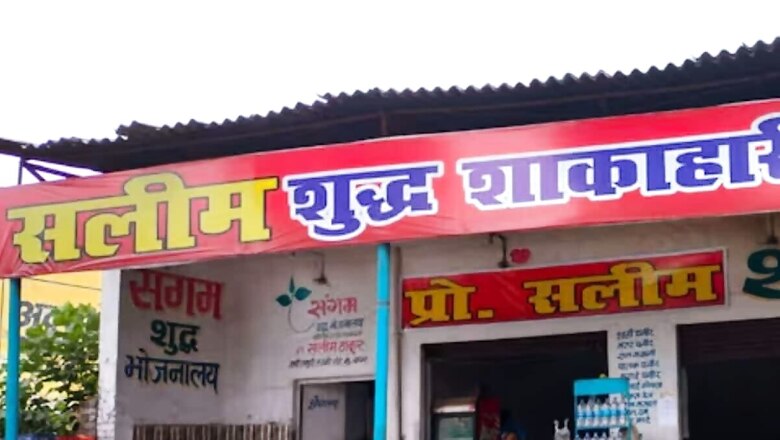
views
In response to directives mandating clarity in shop ownership during the Kanwar Yatra in Uttar Pradesh’s Muzaffarnagar, local establishments are witnessing significant transformations. After the police issued an order requiring proprietors such as shopkeepers of food shops, dhabas, and hotels to clarify their names during the Kanwar Yatra, signs specifying the names began to appear on shops and fruit carts. However, this move has sparked political controversy, with statements from several politicians emerging consistently.
In response, Samajwadi Party chief Akhilesh Yadav voiced concerns about the implications for shopkeepers with names like Munna, Guddu, and Fateh. Following this, a team from News18 conducted a reality check at ground zero along the Kanwar route in Muzaffarnagar, confirming that many Muslim shopkeepers have indeed displayed name plates outside their shops.
One notable change is at the longstanding eatery, Sangam Shuddh Bhojanalay, which has now been renamed Salim Shuddh Bhojanalaya. The proprietor, Salim, expressed discontent, citing a 25-year history of the original name. This alteration marks the first instance of administrative intervention prompting such changes.
Faheem, owner of the tea stall formerly known as Chai Lover Point, situated on the Khatauli bypass, renamed it Vakil Ahmed Tea Stall after police intervention. Faheem voiced apprehension over potential losses during the Kanwar Yatra, lamenting that devotees might avoid his stall due to its Muslim-owned status. Faheem further explained that the name change was implemented to clarify whether the shop belongs to a Hindu or a Muslim during the Kanwar Yatra. He expressed concern that following the administration’s order, he anticipates losses during the Yatra. Faheem believes that once Shiva devotee Kanwariyas see the new name of his shop, they may refrain from visiting it.
Further controversy arose when four Muslim employees were reportedly dismissed from Sakshi Dhaba on Khatauli bypass. The owner attributed this action to instructions from local authorities, underscoring tensions around the enforcement of identity disclosures.
Political figures have weighed in on the issue, criticising the enforcement measures as potentially discriminatory. This has ignited a broader debate on religious identity and economic impacts in the region.














Comments
0 comment